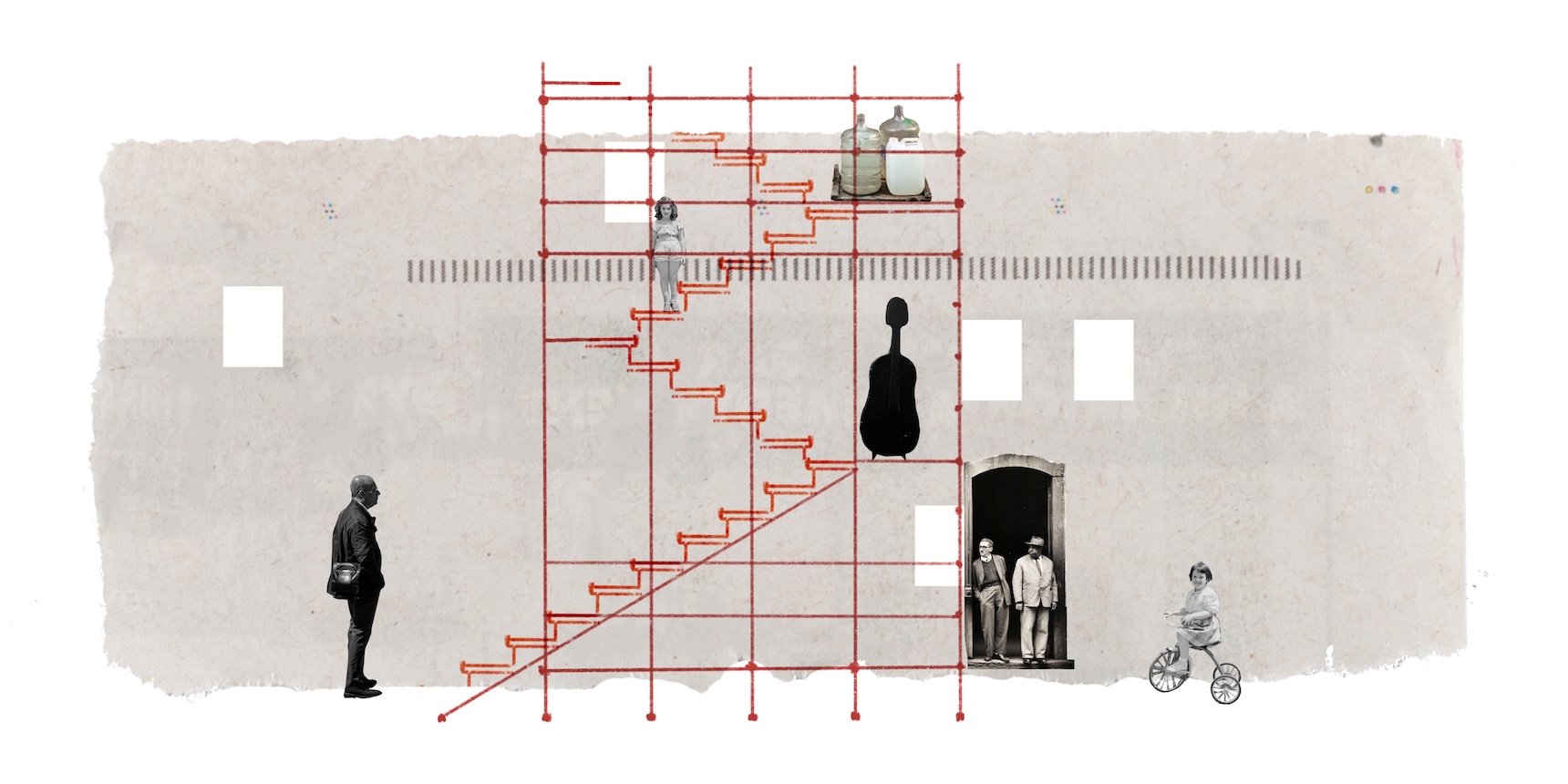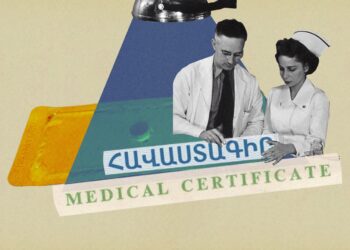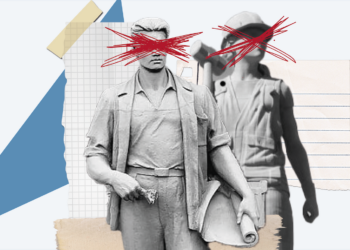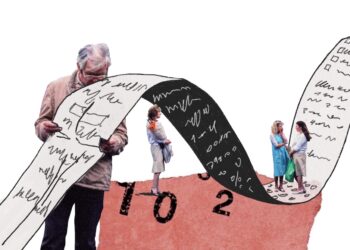
Trained superintendents or managers will now be part of management bodies [similar to condominium corporations] of apartment buildings across Armenia, according to amendments to the law “On the Management of Apartment Buildings.” These amendments were initiated by Armenia’s Urban Development Committee, adopted on January 17, 2023, and will come into force on July 1, 2025.
The Committee justifies the legislative changes stating that after the privatization of Armenia’s housing stock following the collapse of the Soviet Union, the formation of management bodies for apartment buildings occurred mostly through inertia, without a systematized procedure, standards, or other requirements. This will change with the new legislation.
Requirements for Being a Manager
In February 2023, the government submitted a draft decision on these amendments for public discussion. This decision defined the requirements for professional qualification of apartment building managers, as well as the procedure for their training and management practice.
According to the draft government decision, professional qualification requires knowledge of legal, technical, administrative and financial areas of Armenian legislation. These requirements are compulsory for condominium managers as well.
In Yerevan, there are 4,938 apartment buildings, of which 4,547 are managed by 258 condominium corporations, 146 by 138 authorized managers, two by a trust manager, and 243 by the heads of administrative districts of the municipality.
Training and Examination
To ensure that the manager is qualified, the state plans to conduct a number of training sessions and test their knowledge through an examination. According to the draft government decision, in 2025, the Armenian government’s Urban Development Committee will begin organizing two-month courses, four times a year.
Tanya Arzumanyan, the Head of the Housing Provision Division in the Housing Policy and Communal Infrastructure Department, says, “we will attempt to fill knowledge gaps through training. Not only current managers, but also other interested individuals will have the opportunity to participate in the management courses.”
The committee’s website will publish the test results and apartment owners can choose a manager from the list of individuals who participated in the training course.
Current Situation and Aim for Change
According to data from the Urban Development Committee, only around 42% or approximately 8,000, out of the 19,000 apartment buildings in Armenia have management bodies. The remaining 58%, or around 11,000, are managed by the municipalities.
The importance of having the necessary skills and knowledge of building management cannot be overstated. Without it, building maintenance isn’t sufficient, worsening the condition of the building and endangering the structure as well as the safety of residents. Therefore, it is crucial to reform the system of managing apartment buildings.
According to Arzumanyan, communities lack the resources to manage the approximately 11,000 buildings under their purview. To remedy this, existing managers must receive training, and new personnel must enter the field. This approach will improve management in the medium term, while more fundamental changes may be considered later.
Condominiums
A condominium is a membership-based, not-for-profit, non-commercial, voluntary association established by its members through property fees for the purpose of managing apartment buildings.
The general assembly of the property owners is the condominium’s highest body. It has the power to choose the composition of the condominium board, the president, manager, and audit committee, as well as terminate their authority.
According to Aram Grigoryan, President of the Condominiums Development Association, the condominium manager and president are usually the same person. In very few cases, the positions of manager and condominium president are held by different people.
The manager is responsible for organizing and supervising ongoing maintenance on the building, troubleshooting issues, and initiating and implementing various initiatives to improve the building and create a safe environment within the approved budget. They must respond promptly to issues raised by residents and present suggestions to the committee when necessary.
The condominium president calls and chairs board meetings and general meetings. They also organize board activities, prepare materials for discussion in these meetings, supervise the manager’s activities, and process the applications and proposals of condominium members.
Grigoryan believes that the manager and board members of a condominium do not necessarily have to be specialists.
“If we are moving towards democratic management, as we often say we are, then this approach contradicts democracy,” he explains. “If a manager hasn’t passed the required test and residents don’t want to dismiss them because they are a good manager, despite not knowing a few laws and not passing the test, how can they be dismissed? This would be illegal. Only residents have the authority to dismiss a manager.”
Arzumanyan explains, “A resident and owner have the right to know whether the building’s manager is proficient at their job and to decide whether they should continue in their position. By law, owners’ meetings have the authority to determine the type and election of the management body and to terminate its authority.”
Expectations of the New Law
For several years, Hripsime Galstyan, a resident of the Shengavit administrative district in Yerevan, has been persistently knocking on her condominium corporation’s door, requesting improvements to the building such as fixing broken windows, dealing with rats, and addressing the deplorable condition of the basement.
“I understand that the monthly fees collected from residents may not be sufficient to carry out major renovations on the building, but the problem is that even small repairs are not being done,” Galstyan says. “For example, the windows in the entrance were broken. We chased after the condominium management for months. They don’t say that they won’t fix them. They say that they will, and then years go by.”
Galstyan believes that most owners would appreciate the building manager calculating how much needs to be collected every month to address the building’s problems.
“But I have come to the conclusion that those people don’t have the ability to make these calls,” she says. “I think they simply collect the money, take care of their internal costs, and are content with that.”
According to Galstyan, the new law may make managers more attentive. “I believe that a manager who is currently doing their job will continue to do so, while one who is not doing their job now will not do it in the future. However, the change in the law is positive in that residents will at least come together to express no confidence in their incompetent manager. There is also the issue of awareness. It is up to the residents to be informed of this right,” Galstyan explains.
The Quality of Condominium Management
In February 2023, Astghik Mirzakhanyan, an expert from the United Nations Development Program (UNDP), conducted a study on the operation of condominiums in apartment buildings in Yerevan to learn about their problems.
According to the expert, the study showed extreme differences between newly constructed and old buildings. The management of condominiums in newly constructed buildings was found to be the best in the country. In contrast, the managing bodies for old buildings were formed automatically when the former Housing and Maintenance Offices were simply renamed condominiums. These managing bodies had not received the consent of the residents and had not been reviewed for years. In contrast, the managing bodies for new buildings had been formed according to more systematic and stringent standards.
In new buildings, “realistic budgets were devised and accordingly, appropriate fees are calculated, which enables proper management and maintenance of the buildings,” explains the expert. As a result, the average fees of these condominiums for mandatory maintenance of common shared property is much higher.
Condominiums present certain types of problems: dilapidated buildings are many and residents often cannot pay high fees. To address this, some condominiums try to encompass numerous buildings to cover necessary budget costs. This approach often results in lower management quality.
Reforms are needed in this field, according to Mirzakhanyan. The first to benefit from these reforms should be the condominiums themselves, as they experience the most pressing challenges in building maintenance.
Law & Society
Better Late Than Never? Certification Requirement for Medical Workers
Starting on January 1, 2023, healthcare workers in Armenia must receive certification to continue working in the field. Astghik Karapetyan looks at the process and gaps in the system that need to be addressed.
Read moreUnregistered Employment, Lost Taxes, Compromised Rights
In the last three years, the number of reported cases of unregistered workers has increased in Armenia. Despite numerous legislative regulations and monitoring tools, unregistered employment remains a critical issue.
Read moreMartial Law: A Justification for Imposing Restrictions
A number of restrictions is foreseen in the bill of amendments to the Law “On the Legal Regime of Martial Law.” Arpine Simonyan talks to experts about potential dangers to some fundamental freedoms.
Read moreState Support In the Fight Against Infertility
With declining birth rates since the 1990s and the prevalence of infertility in Armenia, the government launched fertility programs. Astghik Karapetyan looks at how effective they have been.
Read moreProposed Changes in Armenia’s Tax System
The Tax Revenue Management Plan for 2022-2025 will encompass several alterations in Armenia’s taxation system. Arpine Simonyan presents the main types of taxes in Armenia, the planned changes and challenges taxpayers face.
Read moreArmenian Citizenship: Who Can Obtain It and How
Requirements to obtain citizenship are set out in the Law “On Citizenship of the Republic of Armenia”. There are two main ways through which a person can receive Armenian citizenship –– by birth and by naturalization. Astghik Karapetyan explains the process.
Read more






